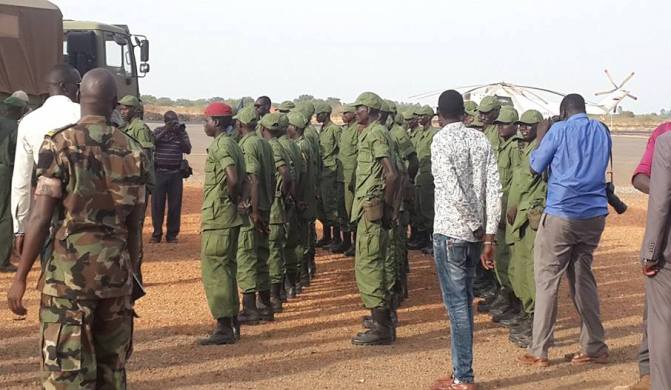Presidency says not given directive over troops cantonment sites

June 13, 2016 (JUBA) – South Sudanese presidency comprising President Salva Kiir, First Vice President, Riek Machar, and Vice President, James Wani have not yet directed state governments and army command to establish cantonment sites for forces of the Sudan People’s Liberation Army in Opposition (SPLA-IO) in the country.
A state governor in Bahr el Ghazal region revealed that the presidency has not yet acted upon their last week’s consensus to establish cantonment areas for the opposition forces.
General Elias Waya, governor of the newly created Wau state, said he has not received any official directive from the presidency about the establishment of the cantonment sites for forces of SPLA-IO.
“I have no information about the establishment of the cantonment sites for SPLA-IO forces in the state. There is no official communication. No directives have been given from the presidency,” Governor Waya explained.
“Yes, we heard from the media the decision of the cabinet but this has to be operationalized. It has to be made official in writing,” he said when reached on Monday to comment on the establishment of cantonment sites.
Waya also described security situation in the area as calm and under control.
His comments echoed the explanation from a SPLA-IO’s senior commander, General James Koang Chuol, who also said the Joint Military Ceasefire Committee (JMCC), of which he is a member, has not yet received official directive from the presidency to establish the cantonment sites.
Observers say the delay in the establishment of the cantonment sites for forces of the SPLA-IO in the country, specifically in the two regions of Bahr el Ghazal and Equatoria, continues to be a cause of current tensions and clashes between the two rival forces when coming into contacts during reconnaissance.
Others attribute the delay to lack of funds to facilitate movements of the officials who would be involved in identification of the locations and discussion with local communities.
(ST)
